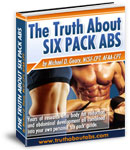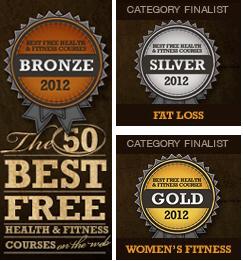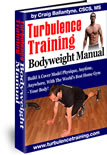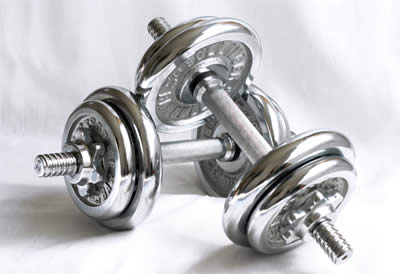Are Your Healthy Food Choices Actually Healthy?
Wow, December is really flying by, the holidays are practically upon us!
But, more importantly …
… it’s almost the big day when we start working on our New Years Resolutions.
What are yours?
There are a lot of people out there who are choosing to work on their health in 2013.
You know: eat more healthfully… lose some excess weight… workout more often… stuff like that.
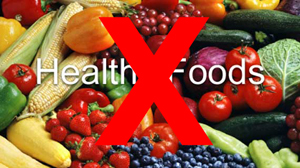
If you’re one of those people then this guest post by my friend Nick Pineault, author of the “Healthy or Not” Nutrition Guide is going to be VERY interesting to you.
Heck, even I’VE learned something from Nick’s post … and that’s saying something. I thought I knew it all when it came to making THE healthiest food choices possible.
Thanks Nick, you’ve really opened my eyes, particularly with respect to the existence of these ‘fake’ products that WOULD be healthy if they weren’t … well … FAKE !
So, without further ado, I’m handing the reins over to Nick to give you the same shocking eye-opening information I just got. Take it away, Nick:
~~~~~~~~~~~~~~~~~~~~~~~
3 Healthy Foods That SUCK
By Nick Pineault, Author of “Healthy or Not“
Over the years, I’ve learned a ton about nutrition.
Eat Clean. Avoid sugar. Avoid packaged foods. Eat more veggies. Don’t eat this, don’t eat that.
And I thought I knew it all.
But when I read hundreds of hours’ worth of studies and books to write my latest nutrition guide, Healthy or Not … I was shocked … and angry.
Turns out small details can turn your favorite nutrient-packed healthy foods into useless garbage.
Most food manufacturers make money their #1 priority… NOT nutrient density.
The sad thing that happens is this: they cut corners, and end up screwing up every bit of nutrition left in their product. Of course, they still market it as “healthy” and “all-natural” … and you and I still buy it.
I’ve come across several nonsense so-called “healthy foods” during my research.
Here are the 3 that made me spill my morning coffee over my keyboard when I read about them:
1) Honey.
Don’t freak out and close your browser just yet.
I’m NOT talking about all honey.
Honey is, as you likely already know, a superfood that can be part of your diet when consumed in moderation (that means 2-3 teaspoons per day… not 2-3 cups).
The problem is: more and more stories come out about adulterated honey that has been cut with glycerine, or worse, with high fructose corn syrup.
In fact, one controversial study by the Food Safety News showed that up to 75% of all honey sold in the U.S. may (underlined for a good reason) be fake. (1)
Because of a special costly filtration process, manufacturers are able to remove pollen from their honey, removing any possibility to trace its origin. Some say it’s a way to sell cheap Chinese honey to unwary consumers, and some other say it’s BS. I think it’s a little bit of both.
The Solution
When I’m not sure if a food is healthy or not anymore, I try to find local sourcing that guarantees me that this is the real deal. So: find a local honey producer you can trust, and buy from them.
Also, ALWAYS choose non-pasteurized over the pasteurized stuff (which is basically devoid of all the nutrition and benefits honey is known for).
2) Olive Oil.
It makes me cringe every time I see olive oil packaged in a transparent bottle at the grocery store. I thought everyone knew all plant-based oils’ polyunsaturated fats are prone to oxidation.
Okay… let me talk in plain English instead of the scientific lingo most food manufacturers try to blind you with.
What this means is that olive oil shouldn’t be exposed to air, light and heat too much. Stick to oil that is stored in those dark or opaque bottles.
Wait! It gets worse (again!).
According to the U.S. Pharmacopoeial Convention, 16% of all olive oils on the market are adulterated in some manner. (2)
Because of different loopholes in labeling and commercial rights, it seems that corporations get away with importing olive oil mixed with corn, soy or canola oils and still sell it as “extra virgin olive oil”.
Again, finding a trustworthy manufacturer is the key to make sure your oil is the real deal and brings you the nutrition it promises.
The Solution
The olive oil you want is organic, first cold-pressed, and stored in a cool, dark place.
And if you’re still wondering if your olive oil is fake or not, try this: put the bottle in the fridge overnight. If the oil is solid by morning then it’s real. If it’s liquid then it’s fake.
3) Agave Syrup
It’s all the hype these days.
“Low GI” they say.
“All-natural” they say.
The truth: 99.9% of all agave syrup is WORSE than high fructose corn syrup. Yes, you read that right.
Unlike what manufacturers would have you believe, almost 100% of agave syrup is NOT made from the plant itself, but from its root bulb, which is converted to fructose after a heavy high-temperature chemical processing.
Even though the final product is low-GI, it contains more fructose than high fructose corn syrup, the most fattening and damaging sugar out there. (3)
The Solution
If you want to use agave, you’ll have to find a manufacturer who commits to providing an outstanding product. A rare treat.
Your agave syrup should be:
• Processed at low temperatures
• Low fructose (around 50% is the best)
• Organic, without the use of pesticides
These are just three of the healthy foods that can become unhealthy… or even dangerous when manufacturers cut corners.
In “Healthy or Not“, I reveal dozens of other so-called healthy foods you need to ditch from your kitchen with anger, and dozens of healthy alternatives you can start using today to boost your health, fat loss and workout results.
Trust me: this is the last nutrition guide you’ll ever need.
Sources (no, I don’t make this stuff up):
(1) http://www.foodsafetynews.com/2011/11/tests-show-most-store-honey-isnt-honey/
(2) http://blogs.discovermagazine.com/80beats/2012/04/09/is-there-saltpeter-in-your-saffron-and-melamine-in-your-milk/
(3) http://articles.mercola.com/sites/articles/archive/2010/03/30/beware-of-the-agave-nectar-health-food.aspx
~~~~~~~~~~~~~~~~~~~~~~~
VERY informative, indeed !! Thanks again for sharing your knowledge, Nick.
I’m sure I speak for everyone here when I tell you we appreciate you making sure we all know what we’re dealing with when it comes to sneaky food manufacturers out to make a quick buck at the risk to OUR precious health. 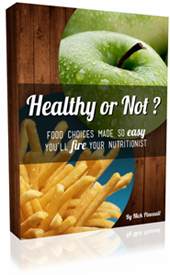
Keep spreading the word on stuff like this. I, for one, will be reading everything you write, and I HOPE everyone here feels the SAME.
Okay gang! Check this out… You can find out THREE MORE ‘Healthy But NOT’ foods (plus a whole lot more stuff that you NEED to know if you’re serious about GETTING and STAYING healthy and lean) by visiting Nick’s website here:
Have a fit, fun and fantastic day.
Girlwithnoname
16241
Comments Off on Are Your Healthy Food Choices Actually Healthy?


